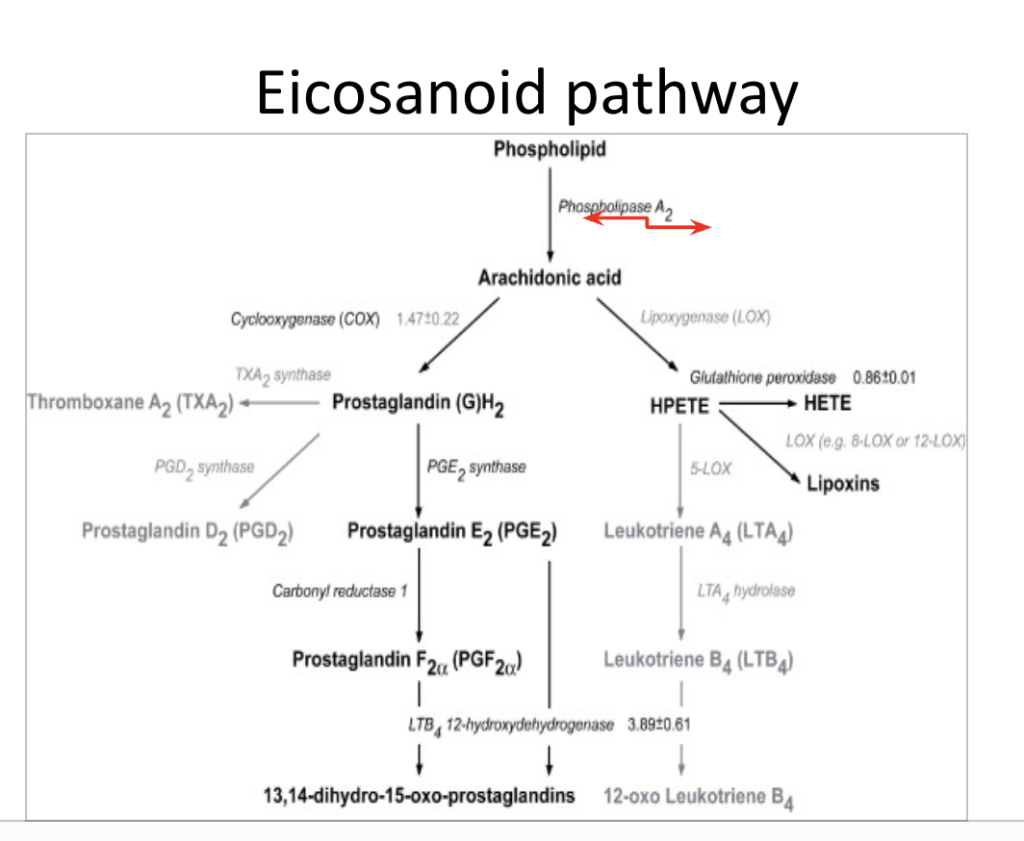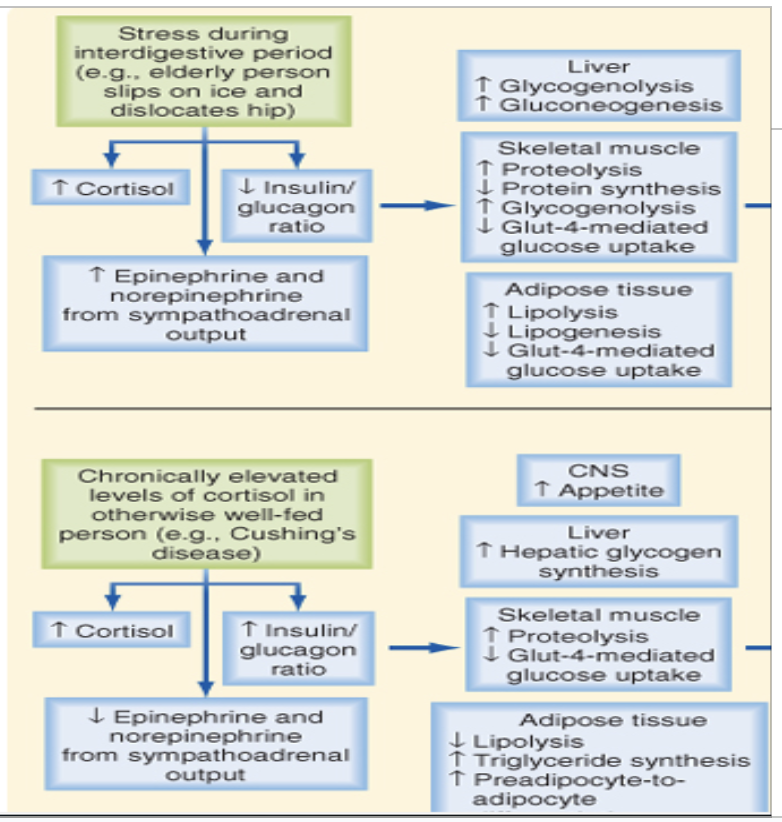Glucocorticoids (cortisol) affect almost all the systems of the body.
Glucocorticoids’ effect on carbohydrates, protein, and fat is given in this link.
Cardiovascular system
- Increases myocardial performance by increasing Na+-K+ ATPase activity
- Increases expression of beta-adrenergic receptors in the heart.
- Increases responsiveness of arterioles to catecholamines and angiotensin II.
Bone
- Decrease the absorption and reabsorption of calcium from the intestine and kidney
- Result in PTH secretion to maintain calcium causing bone resorption. This is the reason for osteoporosis after the chronic use of cortisol as a drug.
Muscle
- Excess muscle weakness and pain common due to proteolysis
- High levels of cortisol cause hypokalemia (due to slight mineralocorticoid effects) causing hyperpolarization and making stimulus generation difficult.
Reproductive and Gastrointestinal system
- Cortisol decreases the reproductive axis.
- Git motility decreases, GI acid secretion increased
Blood cells
- Causes eosinopenia
- Causes lymphocytopenia
- Causes mild erythrocytosis.
- Produces mild thrombocytosis
Inflammation
- Anti-inflammatory actions.
- Inhibits synthesis of chemical mediators of inflammation.
- Stabilizes the lysosomal membrane.
- Inhibits leucocyte functions.
Allergy
- Cortisol inhibits the mediators of allergic reactions.
- They Inhibit the release of histamine from mast cells,
- Decrease the number of mast cells.
- Hence prevent allergy and hypersensitivity reactions
Immune System
Immunosuppressive effect.
Cortisol works as a very effective way to control the inflammation, work in the beginning of the reaction of eicosanoid pathway by blocking the phosphalipase A2 enzyemes that is shown in the figure with red mark. Moreover, the product of this pathways like prostaglandins, leukotriene, thromboxane are not produce helping to prevent the inflammation.

Stress
- Stress causes an immediate and marked increase in ACTH secretion by the anterior pituitary gland then cortisol from the adrenal cortex.
- Some of the different types of stress that increase cortisol release are the following:
1. Trauma of almost any type
2. Infection
3. Intense heat or cold
4. Injection of norepinephrine and other sympathomimetic drugs
5. Surgery
6. Injection of necrotizing substances beneath the skin
The diagram below is showing the effect of cortisol in normal stress conditions and in chronically increased conditions. This difference in the body response will help to understand the clinical features of Cushing’s syndrome.



